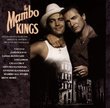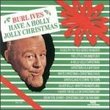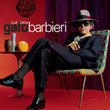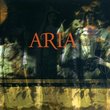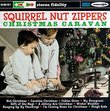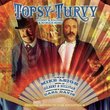| All Artists: Claudio Monteverdi, Anne Sofie von Otter, Bernarda Fink, Sylvia Mcnair, Dana Hanchard, Michael Chance, John Eliot Gardiner, The English Baroque Soloists, Constanze Backes, Catherine Bott, Marinella Pennicchi, Roberto Balconi, Nigel Robson, Francesco Ellero D'Artegna, Mark Tucker Title: Monteverdi - L'incoronazione di Poppea / McNair, von Otter, Hanchard, Chance; Gardiner Members Wishing: 0 Total Copies: 0 Label: Archiv Produktion Release Date: 6/11/1996 Genre: Classical Styles: Opera & Classical Vocal, Historical Periods, Baroque (c.1600-1750) Number of Discs: 3 SwapaCD Credits: 3 UPC: 028944708820 |
Search - Claudio Monteverdi, Anne Sofie von Otter, Bernarda Fink :: Monteverdi - L'incoronazione di Poppea / McNair, von Otter, Hanchard, Chance; Gardiner
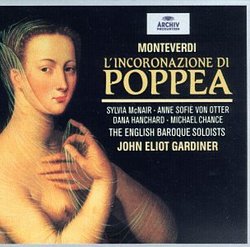 | Claudio Monteverdi, Anne Sofie von Otter, Bernarda Fink Monteverdi - L'incoronazione di Poppea / McNair, von Otter, Hanchard, Chance; Gardiner Genre: Classical
Monteverdi's final opera really is a masterpiece, but its libretto requires close attention--this is not an opera for casual listeners. There is no ideal recording of Poppea currently available--Gardiner's version, while f... more » |
Larger Image |
CD DetailsSynopsis
Amazon.com essential recording Monteverdi's final opera really is a masterpiece, but its libretto requires close attention--this is not an opera for casual listeners. There is no ideal recording of Poppea currently available--Gardiner's version, while flawed, has many admirable qualities. Sylvia McNair is a gorgeous, sensuous Poppea; Dana Hanchard is the finest Nero on record--her soprano expresses the role's capricious willfulness without having to shout the top notes; Catherine Bott is a particularly fine Drusilla. Much of the rest of the cast sounds uncomfortable with Monteverdi and sings far too operatically--the most unfortunate performance in this respect is from the great Anne Sofie Von Otter, whose stentorian Ottavia overwhelms Monteverdi's lightly scored music. Still, this recording's many fine points make it worthwhile listening. --Matthew Westphal Similarly Requested CDs
|
CD ReviewsA very successful recording 02/20/1999 (5 out of 5 stars) "I just read Matthew Westphal's review and want to disagree. Von Otter is a fine Ottavia, better in my view than, for example, Watkinson or Larmore. I think von Otter is very comfortable with baroque repertory, I'd even say that's her best pitch. I don't much like her lieder interpretations. Her baroque singing is, perhaps, heavier than that of many other baroque singers, but it doesn't suffer from uncontrolled vibrato, which the only reason a "heavy" "operatic" singing is objectionable in baroque. There's nothing wrong with singing baroque in full and luscious voice, as long as the voice is focused well enough to admit of baroque coloratura. So von Otter's off the hook. I will agree with Westphal, however, that some of the minor roles in this recording are sung too "operatically." Still, that's only a small part of the recording. Most of it is delightful. Michael Chance's Ottone has not a single flawed moment. His counter-tenor is beautifully soft-edged and evenly produced, having not a shade of any "counter-tenor glare." Bernarda Fink's Arnalta, with her breath-taking "Oblivion Soave," is the best Arnalta I've heard. Dana Hanchard, with her boyish treble voice, is very credible as Nero, even though I dream to eventually hear this role sung by a high tenor. Actually, it's already been done, Ian Bostridge sang Nero during some festival in 1998, but of course that recording, if it was ever made, is unavailable. Do you ever wonder how much we, the public, lose from the prohibition of recording devices in theaters? Most of Callas's recordings, for example, would never be here if some fans didn't record them live; now that's impossible. Anyway, don't listen to Westphal: of what's out there, THIS is the best Poppea. Also check out Handel's Agrippina, from the same series. Michael Chance is totally stunning as yet another Ottone." A sterling performance that cannot be bettered madamemusico | Cincinnati, Ohio USA | 04/05/2003 (5 out of 5 stars) "I may possibly be one of the few people reviewing this recording who actually SAW a performance of this opera onstage...and a very fine one it was, too, featuring an outstanding crop of student singers at the Cincinnati Conservatory of Music more than 20 years ago. And when you see this opera as well as hear it, you canNOT be emotionally distant or unmoved by its combination of drama, humor, sensuality and heartbreak...it is, in my opinion, one of the few perfect operas ever written, from ANY era. And this recording perfectly captures what I feel is an outstanding performance, certainly the best I have heard on records or off.We have come a long way from the overblown Raymond Leppard production of 1961. In 1966, a carefully-chosen cast of early music specialists and a stripped-down orchestra taken from the Oakland Symphony made a classic recording for the Cambridge label; at its time it was considered a masterful recording; yet, only Charles Bressler as Nerone, Carole Bogard as Poppea and Herbert Beattie as Seneca really sang their music with feeling and drama.It is certainly true that performing Montverdi is not like performing Verdi. You cannot exploit your chest voice or high notes in quite the same way. But, I wish to point out, Monteverdi was NOT Lully or one of the Baroque composers, whose music was expected to be sung in a clean but passionless style. Listen to Cathy Berberian's now-classic album of Monteverdi arias with Nikolaus Harnoncourt, and you will understand what I mean. You have to sing all the notes and the right style, but to purposely shy away from an emotional reading of the text is sheer folly. As Gardiner pointed out so well in the notes to his recording of "L'Orfeo," Monteverdi knew that his music was emotionally moving and intended it to involve the listener.There are only two moments where I missed the old Cambridge recording: Seneca's farewell to his students, sung with such tonal beauty and deeply-felt dignity by Beattie, and the final duet where Bogard's creamier voice just soared in the upper register. But as an overall "Poppea," this one is just SO much more involving, and Gardiner performs an even more complete edition (probably discovered after the '66 recording was made). "L'Orfeo" and "Ritorno di Ulisses" may be a little more stodgy and uneven as stage works, but "Poppea" is an unqualified, unquestioned masterpiece that will win over even those who usually resist old music." An excellent piece A music minor | NY | 03/23/2000 (5 out of 5 stars) "I must disagree with Zunino as well. I listened to this recording for a test in a Baroque class and liked it so much that I bought it. While I am not familiar with "correct" It. pronunciation, I do know that this recording follows the Baroque tradition well. McNair is an excellent passionate soprano; her scant use of vibrato reflects the voice control that is necessary in much Baroque music as well as the intimacy between Nero and Poppea that Monteverdi attained in this piece."
|

 Track Listings (13) - Disc #1
Track Listings (13) - Disc #1